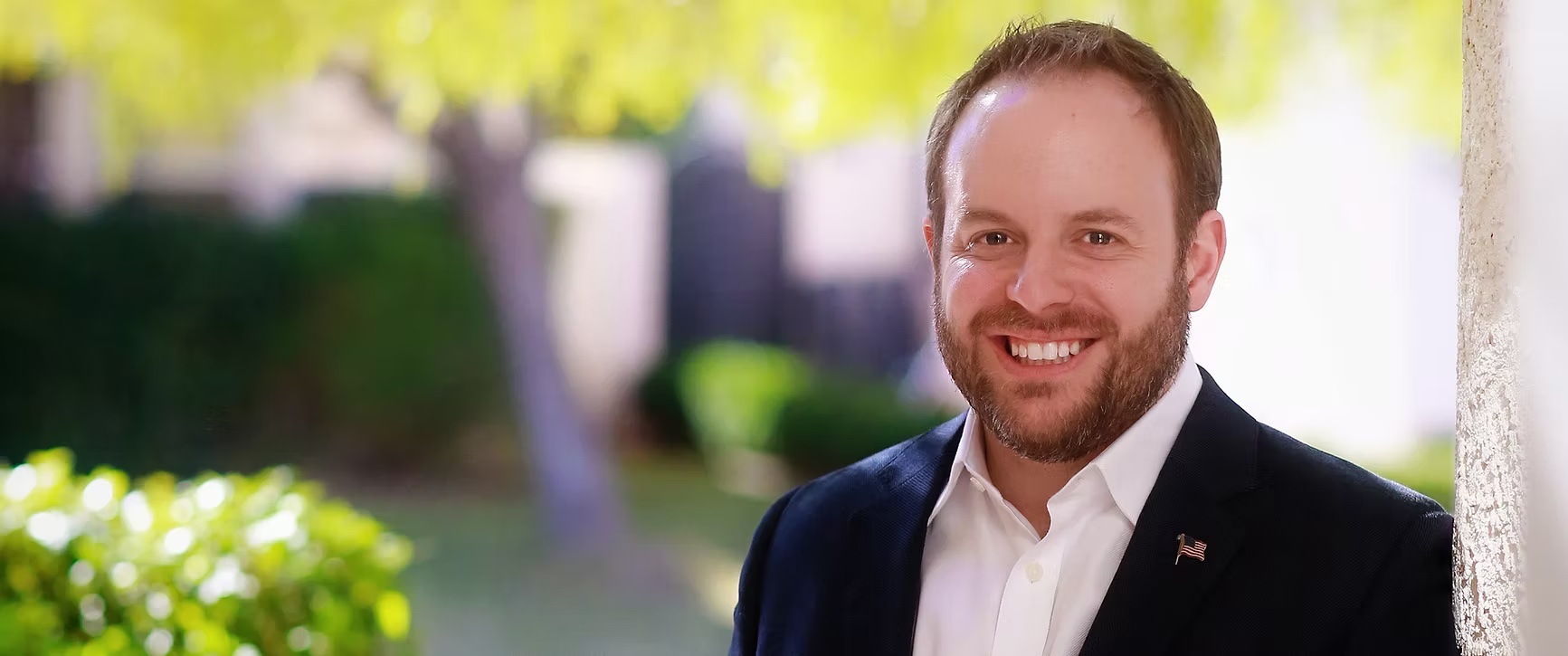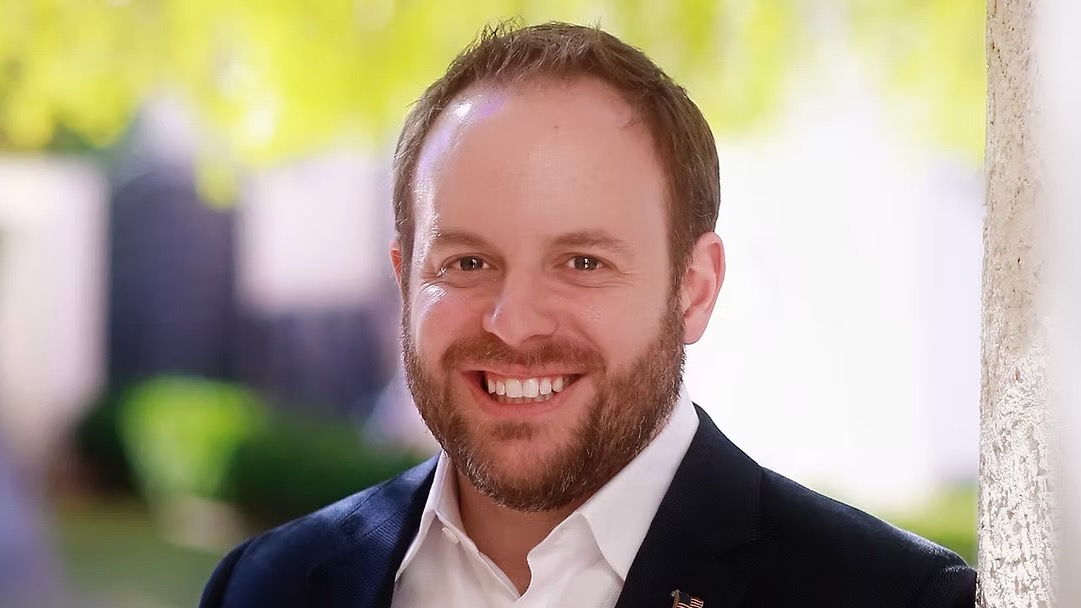By Zach Conine | April 14, 2025

Baby Bonds are an increasingly popular bipartisan government policy in which every child born into poverty receives a publicly funded trust account at birth. This “start-up capital” allows young adults to access education, home ownership, and entrepreneurship, enabling them to build wealth and lead lives that are hopeful, fulfilling, productive, prosperous, and self-directed. Follow our Baby Blogs series to learn about the vision, politics, and people behind Baby Bonds and their transformative impact on the lives of young people, their families, communities, and our economy.
In this installment of Baby Blogs, Nevada State Treasurer Zach Conine highlights his recent introduction of AB67—proposed legislation that would establish a Baby Bonds program for the State of Nevada—and why finding ways to address intergenerational poverty isn’t just the right thing for the state to do, it’s the fiscally responsible thing to do.
Since the COVID-19 pandemic, we have seen prices get more expensive for everything. From gas to groceries and monthly rent and utility bills, everyday essentials are turning into luxury items as working families struggle to find ways to make ends meet.
When we couple this increase in costs with chaotic market conditions, a prolonged high-interest rate environment, and national tariff policies that only increase inflation, it should be no surprise to anyone that it’s getting harder to get ahead in this country.
On April 14, 1967—58 years ago to this very day—Dr. Martin Luther King Jr. spoke about a tale of two Americas. In one, it’s easy for children who are born into families of generational wealth to get ahead. This remains true today. In the “Other America” traditional economics works against working people, and children find themselves born into poverty through no fault of their own and with no pathway out.
It seems that today, 58 years since Dr. King spoke these words, that we are at a similar point in time. In today’s economy, things like homeownership, higher education, and business entrepreneurship are becoming more of a distant memory than a dream for the future.
Through deliberate policies such as redlining, the United States of America created the racial wealth gap. And through inaction at every level of government, we have exacerbated this problem. And through continued inaction, we will perpetuate racial inequality for generations to come. Fortunately, states and local communities can step up. We have the opportunity to do the right thing—and the fiscally responsible thing—at the same time.
The State of Nevada currently ranks 23rd in the nation for the worst rates of childhood poverty, with over 328,000 children covered by Medicaid and the Children’s Health Insurance Program. While vital programs like Medicaid, unemployment insurance, TANF, SNAP, WIC, and others provide a social safety net for people when they need help, these programs have massive upfront and ongoing costs to our state budget. Furthermore, these costs only continue to increase as people move from childhood to adulthood, unable to escape the cycle of generational poverty.
According to the Centers for Medicare and Medicaid Services and the Kaiser Family Foundation, the State of Nevada spends over $777 million on Medicaid services for children each year, amounting to about $2,108 per child per year. If these children remain on Medicaid as they reach adulthood, that number increases significantly to $4,097 per person per year. Therefore, for each person that is unable to move out of the Medicaid program in their lifetime, we can expect to pay $192,559 on health care costs alone per person until they reach age 65.
We see similar investments through food assistance that is provided to low-income households through the Supplemental Nutrition Assistance Program. In Fiscal Year 2024, over 505,000 Nevadans received SNAP benefits, with 62 percent of those participants having families with children. SNAP benefits, while immensely helpful to families, cost the State of Nevada about $45 million a month, or $540 million each year.
To put it simply, it costs too much money to deal with the prolonged effects of generational poverty in our state. That’s why finding ways to address it isn’t just the right thing to do, it’s the fiscally responsible thing we must do. And it’s the only way we can continue to keep our taxes low for residents, while also preserving the integrity of our state budget going forward.
This is why I’m currently proposing legislation that would represent the largest investment in combatting the racial wealth gap and generational poverty in Nevada’s history. By establishing a Baby Bonds program similar to what has been done in other states like Connecticut and Washington, we can start to change the way we think about economic mobility in this country.
That’s what this proposal is. At its core, a Baby Bond is a modest investment in low-income children who need a boost to get themselves on the path to higher education, homeownership, and business entrepreneurship. From the time a Baby Bond is created, that modest investment will grow over time, providing the next generation with access to the financial tools they need to grow and thrive.
Now, as we find ourselves in an economic environment that Dr. King warned us about nearly 60 years ago, we have a responsibility to invest in children and families that have been left behind for generations—but only through action can we make these investments happen and actually move the needle on generational poverty.
So, let’s get to work.
Zach Conine is currently Nevada’s 23rd State Treasurer. Under his leadership, the State of Nevada has financed over $2.5 billion in new affordable housing projects, saved 10,000 small businesses from closing their doors, and has invested in thousands of children and families who would’ve otherwise fallen through the cracks.
If you missed previous installments of our Baby Blogs series, read them here.
Learn more about Baby Bonds in Nevada.
To share feedback on this blog, or for questions about Baby Bonds, email David Radcliffe at radclifd@newschool.edu.
To learn more, explore our Baby Bonds resources.

